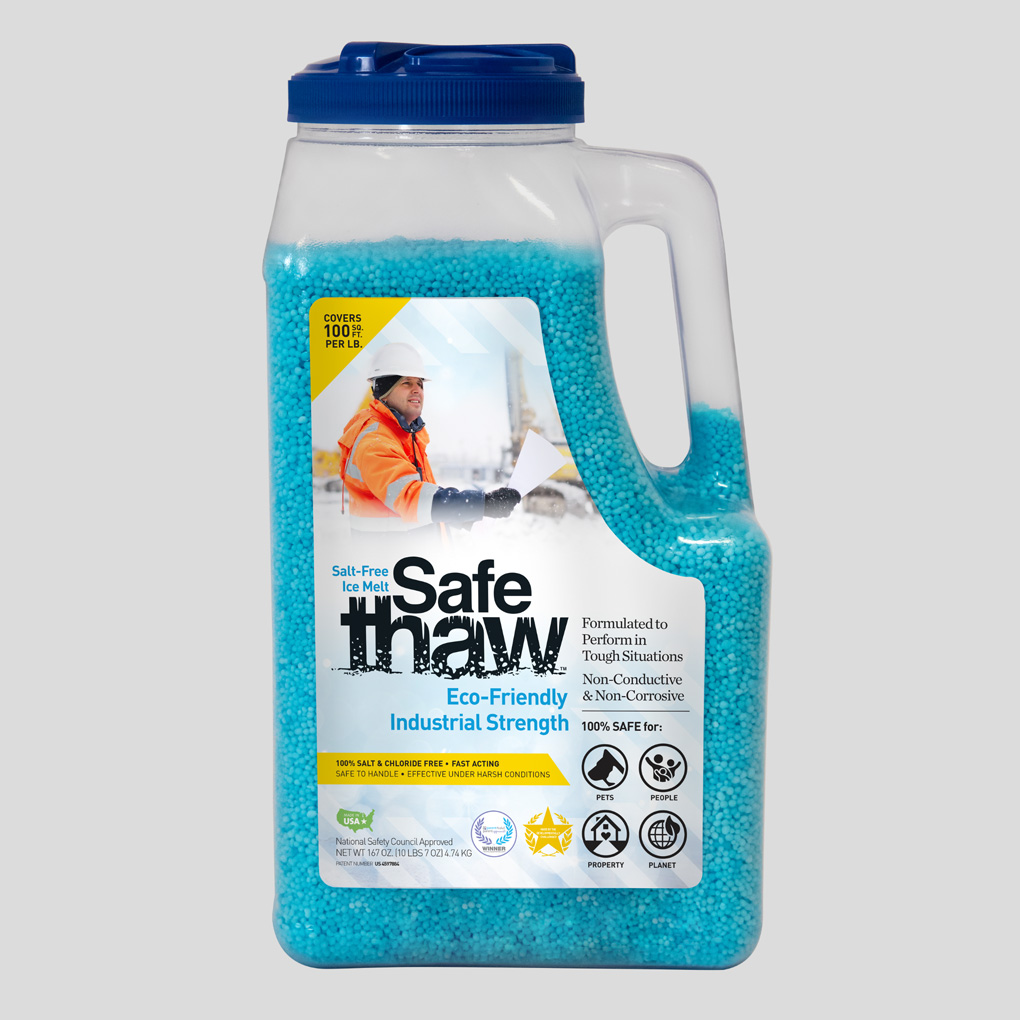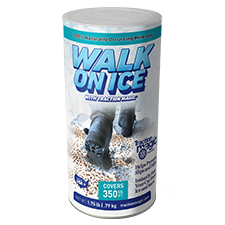3 Key Aspects Of Determining The Thickness Of A Concrete Driveway

When designing or renovating a driveway, one of the pivotal decisions revolves around the thickness of the concrete layer. This seemingly simple factor plays a crucial role in the driveway’s performance, durability, and ability to withstand various external pressures. If you’ve ever found yourself pondering the question, “how thick is a concrete driveway?”, you’re not alone. The answer depends on a multitude of factors, including the type of vehicles you own and the local climate.

Safe Thaw
Safe Thaw was created as the ice management solution for tough winter environments. Ideal in commercial and industrial properties, shops, government agencies, bridges, and construction.
1. Purpose And Weight Bearing Needs
So, how thick is a concrete driveway? Concrete driveways are meant to support vehicles. Hence, understanding the kind of vehicles that will predominantly use the driveway is a starting point.
- Passenger Vehicles: For typical cars, SUVs, and light trucks, a thickness of 4 inches is generally considered standard. This offers a suitable strength to weight ratio, ensuring the concrete doesn’t crack under the pressure of daily use.
- Heavy Vehicles: If you own heavier vehicles like RVs, boats, or perhaps have frequent deliveries from larger trucks, consider increasing the thickness. In such cases, a 5 to 6-inch layer might be more appropriate. The added thickness provides the necessary strength to support the additional weight, reducing the chances of damage over time.
2. Soil Quality And Preparation
The type of soil upon which the driveway sits can significantly influence the needed thickness of the concrete. Well-compacted soil provides a stable foundation, meaning you might not need an extra-thick layer of concrete.
- Stable Soils: If your soil is inherently stable, like a well-compacted clay or gravel base, then the standard 4-inch thickness should suffice for most residential driveways.
- Loose or Unstable Soils: In areas with sandy, loamy, or other types of unstable soils, it’s crucial to not only ensure proper compaction but also consider increasing the concrete’s thickness. An unstable base can cause the concrete to shift or crack, and a thicker layer can offer added stability and longevity.
3. Local Climate Conditions
Environmental factors, especially freezing and thawing cycles, can wreak havoc on concrete. The way a driveway is constructed needs to account for these local challenges.
- Regions with Severe Freeze-Thaw Cycles: In colder climates, where the ground freezes and thaws repeatedly, there’s an increased risk of concrete cracking. This is further exacerbated when salt is used as a de-icing agent. Salt increases the number of freeze-thaw cycles, causing the water in the concrete to freeze, expand, and then thaw. This constant expansion and contraction can lead to cracks or scaling. For such regions, increasing the thickness by an inch or so can add to the driveway’s resilience.
The Perils Of Salt And The Need For Safer Alternatives
While salt is an age-old remedy for slippery, ice-covered surfaces, its adverse effects on concrete cannot be ignored. As discussed earlier, it speeds up the freeze-thaw cycles, undermining the integrity of your driveway. This means, even if you’ve considered the weight-bearing needs and local climate, salt’s destructive nature can still compromise the life of your driveway.
Enter Safe Thaw. This chemical and toxin-free granular ice melt offers an efficient way to melt ice without the damaging impacts of traditional salts. It’s not only gentler on your concrete but also ensures a safer surface by reducing the risks of scaling and spalling. Safe Thaw is especially recommended for those who’ve invested in thicker driveways, ensuring that their investment remains protected for years to come.
100% salt & chloride-free, fast acting Ice Management Solution
Conclusion
We hope you have some clarity now, on ‘how thick is a concrete driveway’. Determining the right thickness for a concrete driveway is not a one-size-fits-all solution. It’s an interplay of vehicle type, soil quality, and climate conditions. And while ensuring the appropriate thickness is vital, protecting that investment from the ravages of salt and harsh winter conditions is equally crucial. Opting for products like Safe Thaw can ensure that your driveway remains as smooth and crack-free as the day it was poured.
Try Also Our Other Winter Safety Products:
Safe Paw
The Original and #1 Selling Pet and Child Safe Ice Melt for over 20 years. Guaranteed environmentally safe –It won’t harm animals or children, and it won’t damage your property. That’s Safe Paw. Safe Paw can change how winter affects our planet.

Walk On Ice
The handy disposable canister can be taken everywhere, with the same 100% naturally occurring minerals that provide instant traction on ice or snow. Use it on sidewalks, steps, or as an instant traction agent for your car.



